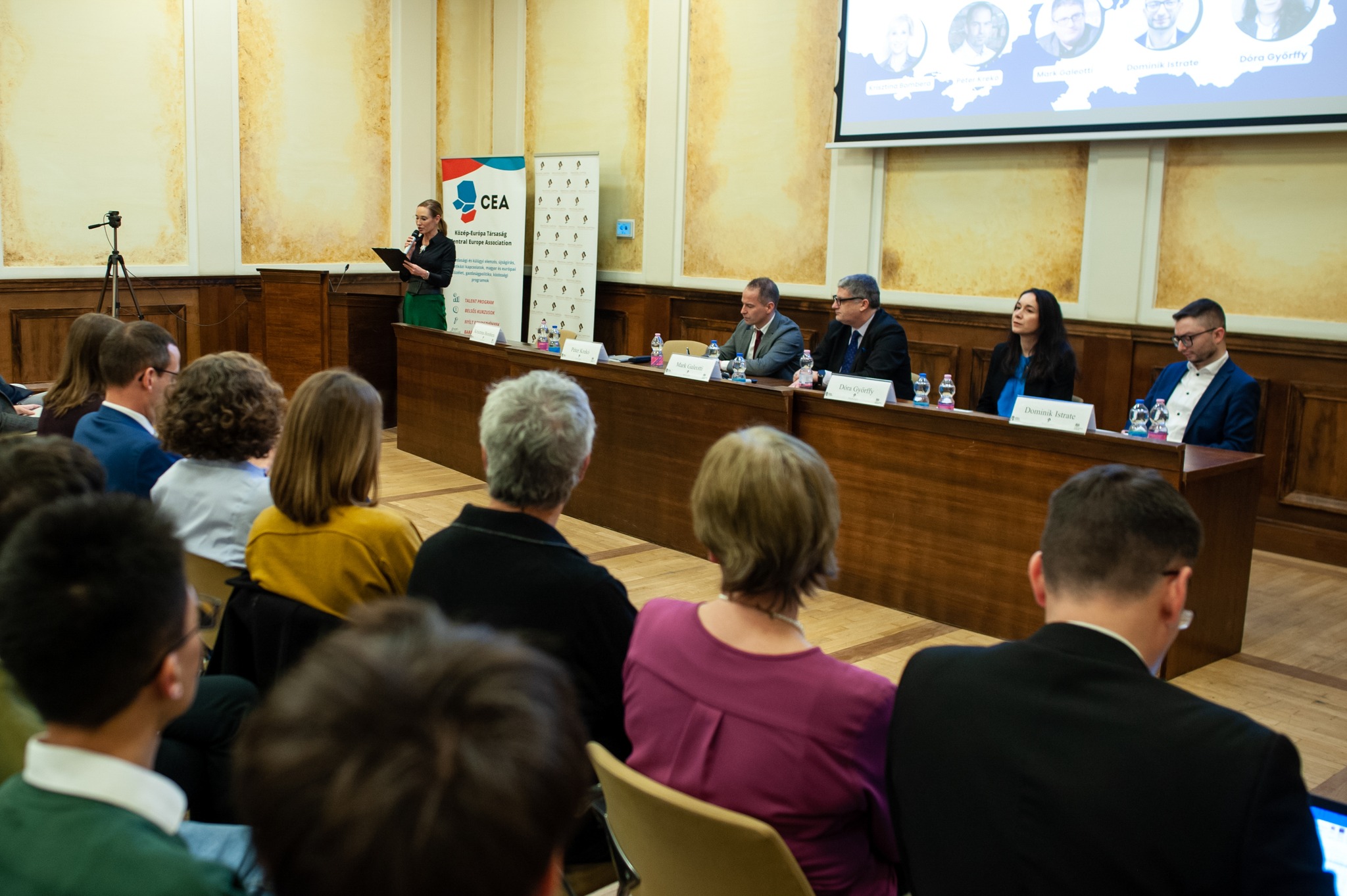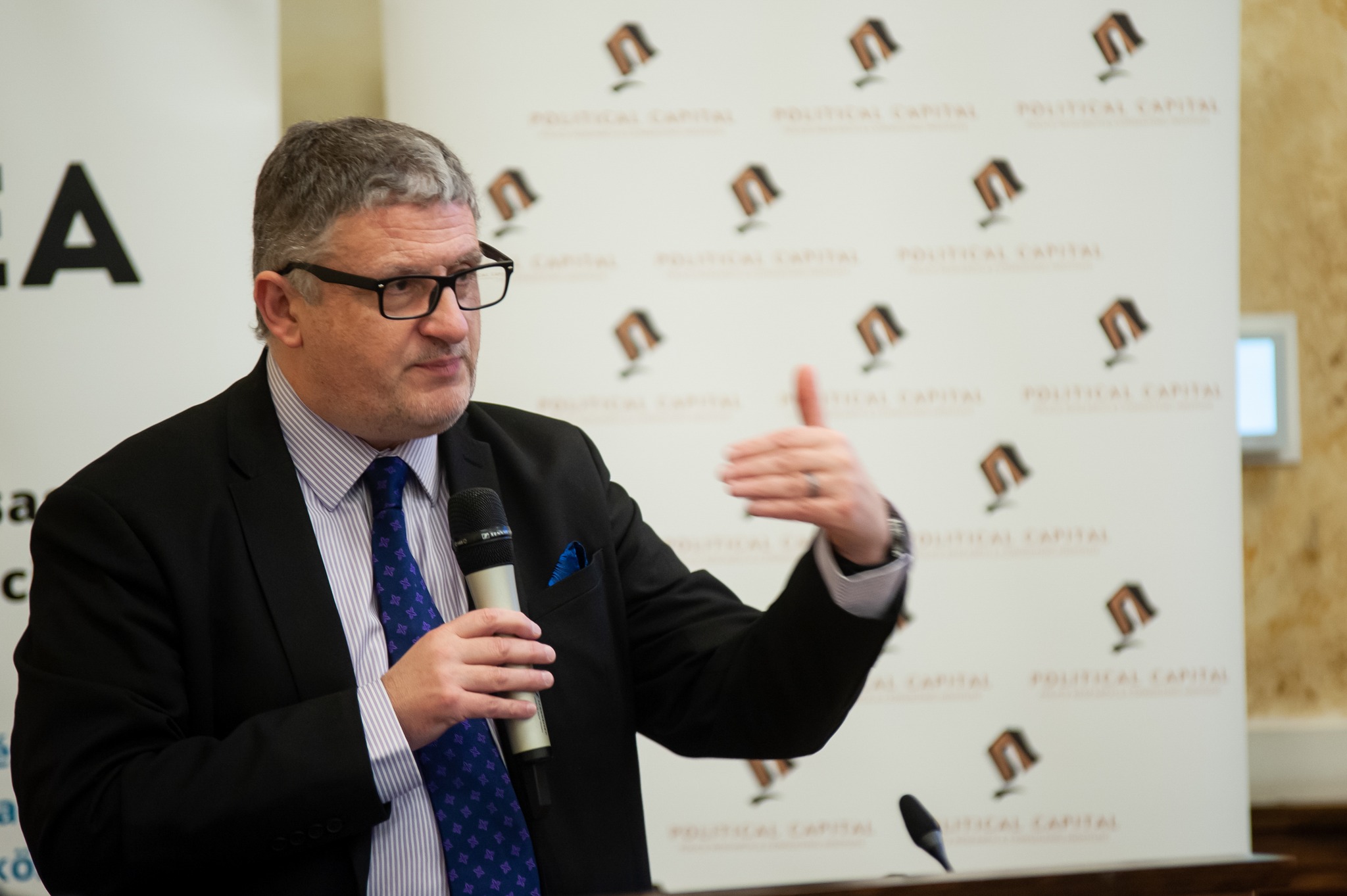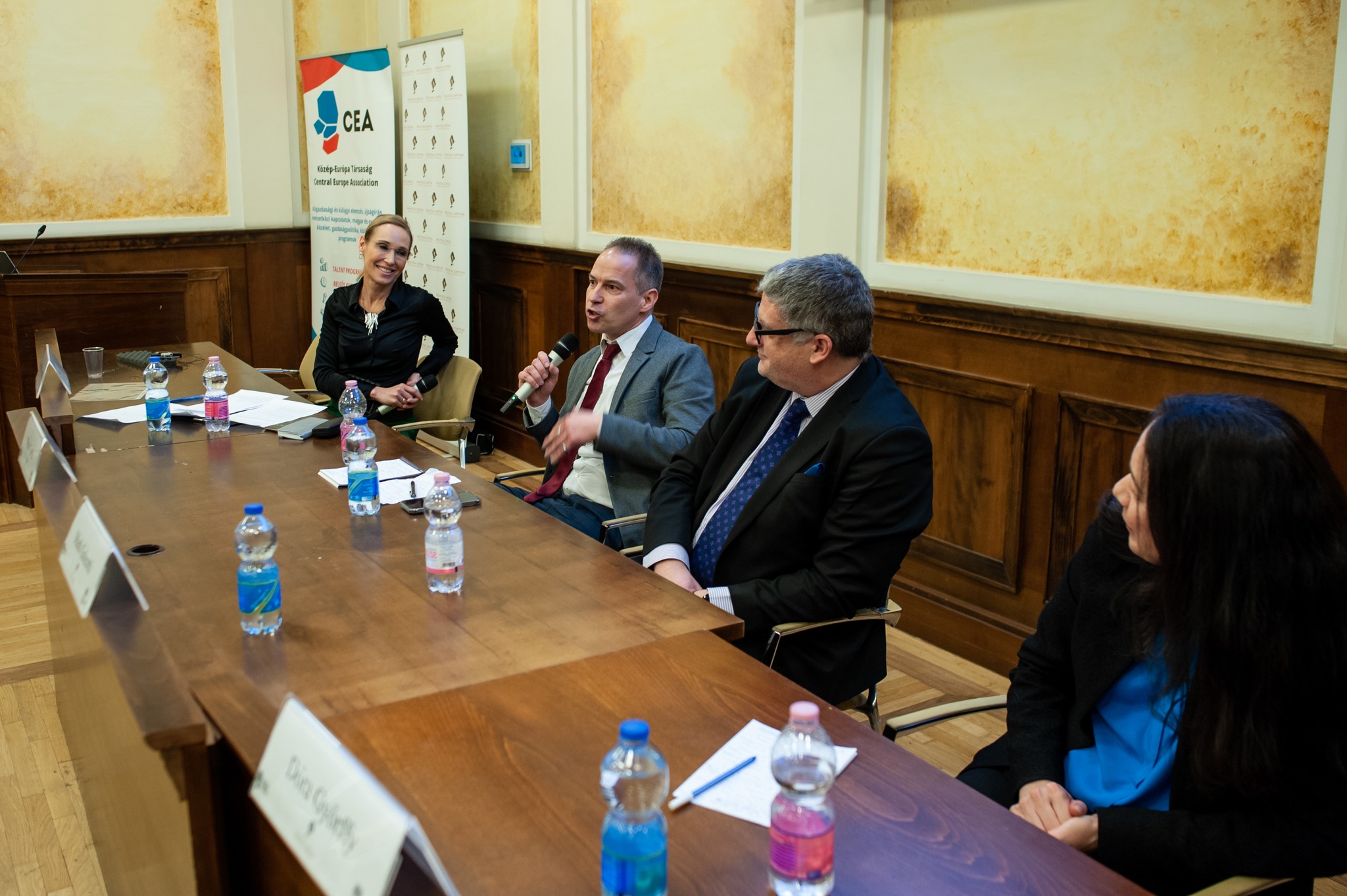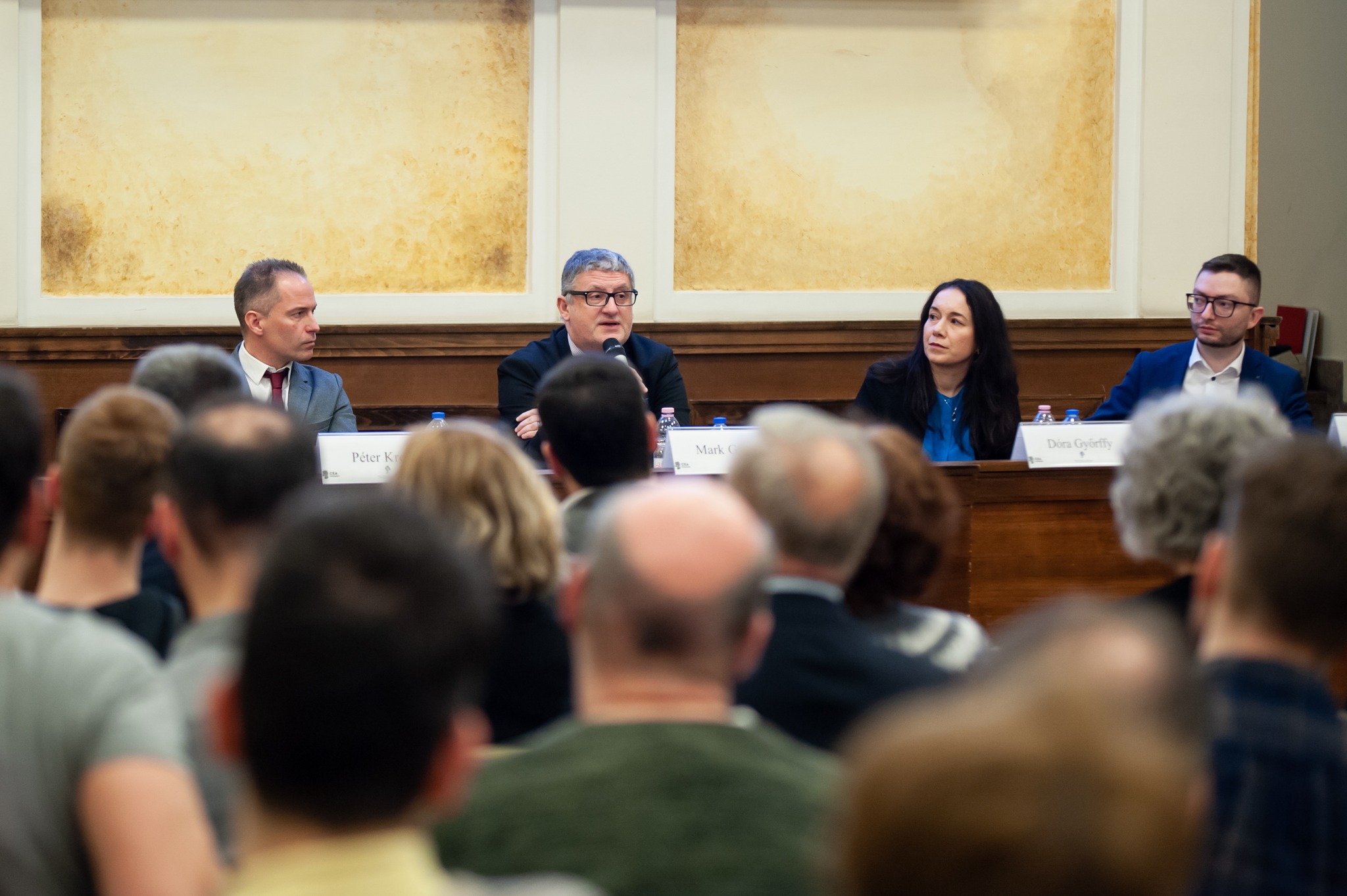Russia’s war in Ukraine – Predictions and Scenarios with Mark Galeotti
On 23 February, Political Capital, in partnership with the British Embassy in Hungary and the Central Europe Association of Corvinus University, organized a conference ahead of the first anniversary of Russia’s invasion of Ukraine. Together with special guest Mark Galeotti, the panelists reflected on the first year of the invasion and discussed future prospects.

After brief introductory remarks by Eszter Tóth, president of the Central Europe Association, Andrew Davidson, Deputy Head of Mission at the British Embassy in Hungary, and Krisztina Bombera, journalist and moderator of the discussion, Mark Galeotti took to the pulpit to deliver his lecture in front of the audience gathered at Corvinus University, Budapest. Professor Galeotti is a renowned expert on modern Russia, an Honorary Professor at the UCL School of Slavonic and Eastern European Studies, a Senior Non-Resident Fellow of the Institute of International Relations Prague, a Senior Associate Fellow at RUSI, and the founder and CEO of Mayak Intelligence.

In his speech, Professor Galeotti set out to address what the situation is going to be like a year from now. Although he shared his conviction that the war will eventually end with a Ukrainian victory, with the uncertainty surrounding the question of whether or not the war is going to continue for another year, he outlined his views on two distinct possibilities.
In the case of a Ukrainian victory, the country is going to have to confront long-standing systemic issues. While solving these is going to be a long process, he expressed cautious optimism about a genuine opportunity to build a functional state with proper institutions arising with the end of the war. Since, as he argued, many of the geographic, religious, and linguistic divisions, which have previously impeded attempts to address the country’s issues, seem to be much less important today.
If the war continues for another year, which is the more plausible scenario, according to Professor Galeotti, there is good reason to think that Ukraine will still be able to resist, thanks to Western economic assistance and the ongoing adaptation of its military strategy. While there are promising signs within Ukraine, he explained, the real Achilles’ heel of the resistance is the West. This is a key component of the Russian strategy which is based on trying to outlast the West. Thus far, Russia managed to deal remarkably well with the economic impacts of the war, however, it takes a long time for the effects of sanctions to really show. Nevertheless, Professor Galeotti is convinced that sanctions do work, and the political impact of increasing economic difficulties could eventually prove to be decisive. With regard to the West, he emphasized that Western unity is one of the important discoveries of the war, and it can persist even in the face of mounting pressure.
The lecture was followed by a panel discussion with the participation of Dóra Győrffy, professor at Corvinus University, Dominik Istrate, founder of CEA Hungary and lead analyst at Aretera Public Affairs, and Péter Krekó, director of Political Capital and senior fellow at CEPA. They spoke about the surprises of the first year of the war, addressed the best-case scenario for both Ukraine and Putin, and discussed the trajectory of Transatlantic relations.

Dóra Győrffy talked about the role of Hungary, which she considers shameful since the country „chose the wrong side.” Nonetheless, due to the country’s relative powerlessness, this did not have major consequences on the Transatlantic alliance in her estimation, though it could have ramifications on Hungarian participation in the post-war reconstruction efforts.
Péter Krekó noted that, surprisingly, European public opinion is still supportive of sanctions, contrary to the initial predictions about the longevity of solidarity. He also added that he does not expect governments to form in the upcoming elections in EU member states that would undermine the unity on sanctions.
Dominik Istrate introduced new considerations into the discussion about the war’s impact on the Central and Eastern European region. He stated that the region is increasing in importance in political and security terms, at least temporarily.

To wrap things up, the panelists took questions from the audience on a broad range of subjects, including Seymour Hersh’s recent article on the Nord Stream pipelines, the adequacy of Western military aid to Ukraine, and Russian influence in Europe.
You can watch the full discussion here.

